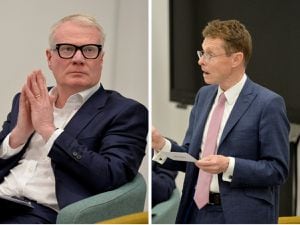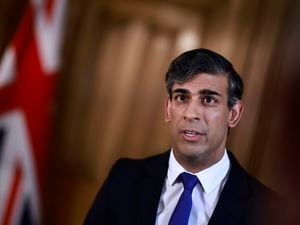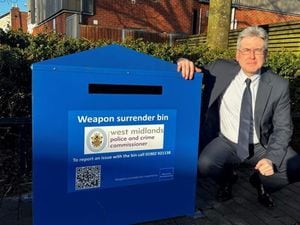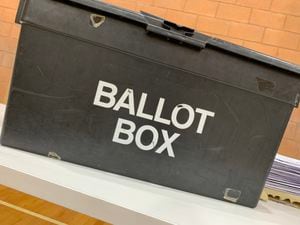Local elections: PM visits Dudley after mixed night for main parties
Theresa May hailed the performance of the Conservatives as she visited Dudley hours after the party strengthened its grip on the borough.
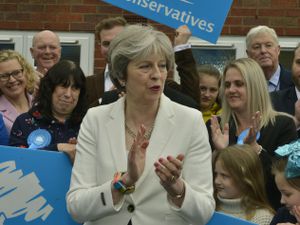
The Prime Minister spoke during a visit to Sedgley following a mixed night for her party at the local elections.
The Conservatives avoided the kind of electoral disaster suffered by sitting Governments in the past and in the Midlands gains were made in key battlegrounds Dudley, Walsall and Cannock.
Full local election coverage:
In Dudley, the Tories, who had been running a minority administration in for the past year, benefitted from the collapse of the UKIP vote, gaining six seats to move level on 35 with Labour.
Although the council remains in no overall control, leader Patrick Harley said he was confident he would receive the necessary support to remain in charge.
UKIP lost every seat in contested in Dudley, where it had previously performed strongly, leaving only one councillor remaining.
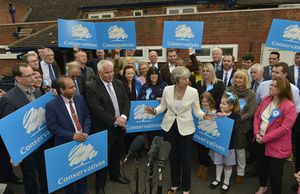
Speaking at the Conservative Club in Hall Street, Mrs May said: "Congratulations to everyone here in Dudley and particularly I'd like to say congratulations to Patrick Harley for the work that has gone on here.
"I know you have been running the council for the past year and we know you've delivered the lowest council tax in the West Midlands combined authority together with providing people with great local services.
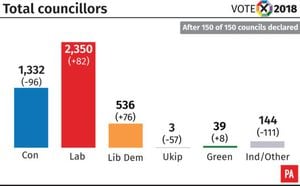
"The testament to work which you have done for local people is shown in the way people here have elected more Conservative councillors, that's great news.
"And I know all the Conservative councillors here are going to work really hard for local people.
"Thank you everyone here. But we're not going to be complacent, we're not going to take anything for granted, I know everybody here is going to be working really hard for the people of Dudley and we're going to build on this success for the future."
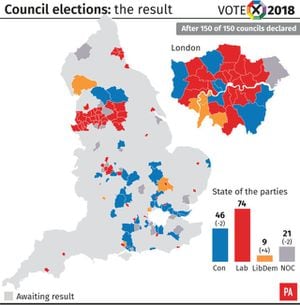
Meanwhile Jeremy Corbyn pointed to 'solid' progress despite failing to secure key targets.
The Conservatives held on to 'crown jewel' authorities in London including Wandsworth, Westminster and Kensington, as well as the key Labour targets of Barnet and Hillingdon.
But despite the ongoing row over anti-Semitism and the lack of eye-catching victories, there were signs of progress for Labour and analysis suggested the two main parties were neck-and-neck overall in terms of national vote share.
Labour gained control in Tower Hamlets from no overall control – and even though it was Labour’s only gain in the capital, the party claimed the results amounted to the party’s best showing in London since 1971.
UKIP suffered a bloodbath, with dozens of councillors culled and its own general secretary comparing the party with the Black Death.
But the Liberal Democrats enjoyed some success, ousting the Tories in Richmond upon Thames in south-west London – leader Sir Vince Cable’s back yard – and neighbouring Kingston while a more unexpected victory came for the party in South Cambridgeshire.
With results in from all 150 councils:
Labour had a net gain of 82 seats and controls the same number of authorities as before the vote.
The Tories suffered a net loss of two councils and have 96 fewer councillors.
The Liberal Democrats put on an extra 76 seats and gained control of four extra councils.
Votes in the local elections equated to a 35 per cent share for both Labour and the Conservatives.
The BBC’s projection suggests that if the result was repeated at a general election there would be another hung parliament with Labour on 283 seats in the Commons compared with the Conservatives’ 280.

